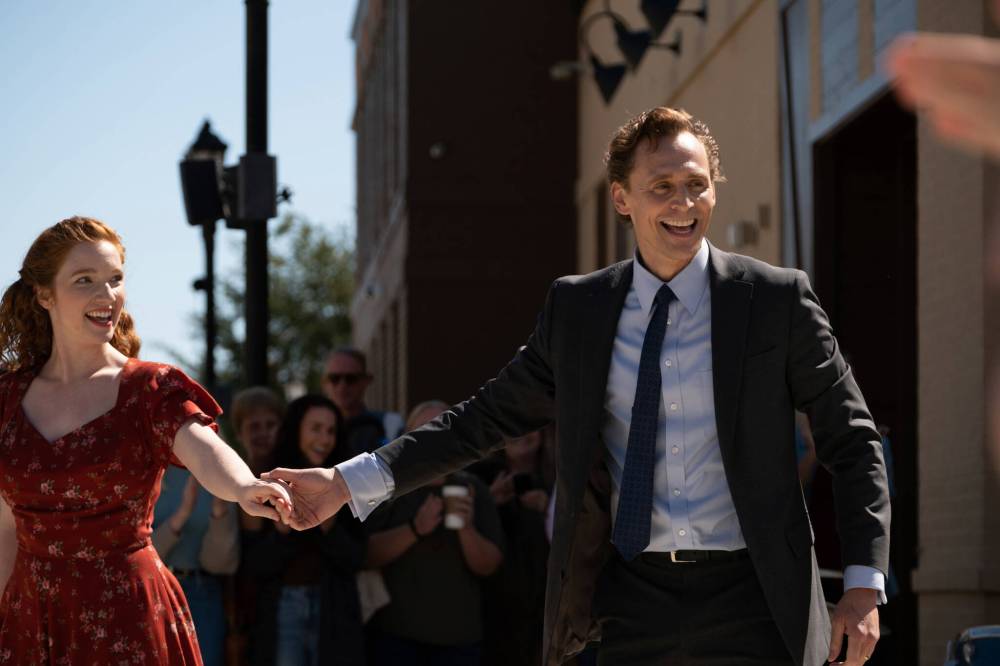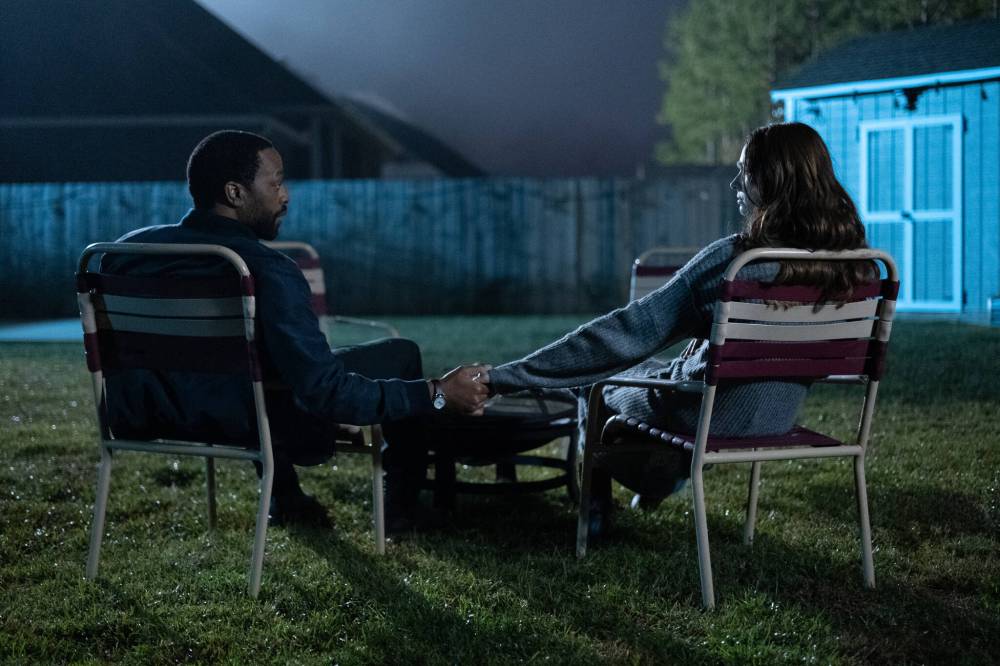It’s the end of the world but it’s cosy
Stephen King adaptation is victoriously more Shawshank than shock and horror
Advertisement
Read this article for free:
or
Already have an account? Log in here »
To continue reading, please subscribe:
Monthly Digital Subscription
$0 for the first 4 weeks*
- Enjoy unlimited reading on winnipegfreepress.com
- Read the E-Edition, our digital replica newspaper
- Access News Break, our award-winning app
- Play interactive puzzles
*No charge for 4 weeks then price increases to the regular rate of $19.00 plus GST every four weeks. Offer available to new and qualified returning subscribers only. Cancel any time.
Monthly Digital Subscription
$4.75/week*
- Enjoy unlimited reading on winnipegfreepress.com
- Read the E-Edition, our digital replica newspaper
- Access News Break, our award-winning app
- Play interactive puzzles
*Billed as $19 plus GST every four weeks. Cancel any time.
To continue reading, please subscribe:
Add Free Press access to your Brandon Sun subscription for only an additional
$1 for the first 4 weeks*
*Your next subscription payment will increase by $1.00 and you will be charged $16.99 plus GST for four weeks. After four weeks, your payment will increase to $23.99 plus GST every four weeks.
Read unlimited articles for free today:
or
Already have an account? Log in here »
Hey there, time traveller!
This article was published 14/06/2025 (198 days ago), so information in it may no longer be current.
The Life of Chuck is an adaptation of a novella by Stephen King by writer-director Mike Flanagan, so one might expect a chiller-thriller of the order of their previous collaborations, such as Doctor Sleep or Gerald’s Game.
But despite an opening segment depicting a global apocalypse — and a supernatural component in the third act — this isn’t a film built around horror beats. It marches to the thrum of a different drummer altogether.
The Life of Chuck shoots for life-affirming inspiration, which is not unfamiliar territory for King, whose non-horror works include stories that have spawned the films Stand By Me and The Shawshank Redemption.
One startling distinction is that this film is adventurously constructed around three seemingly disparate stories.
In the first, the citizens of a community are rocked by events that signal the end of the world is at hand.
The events, which include California breaking off into the Pacific, are of growing concern to small-town teacher Marty Anderson (Chewitel Ejiofor), who decides to help his community cope with the breakdown of society in a series of meetings that function as a combination of parent-teacher sessions crossed with psychotherapy.
The circumstances present an opportunity for Marty to come to an understanding with his ex-wife, Felicia (Karen Gillan), even as both seek to understand the mysterious preponderance of billboards and TV ads sporting an image of a benign-looking accountant type, bearing the legend: “Charles Krantz. 39 Great Years. Thanks Chuck.”
Who is Charles Krantz? The inspired second segment tentatively answers that question with Tom Hiddleston’s titular Chuck, indeed an accountant, visiting a town for a business conference.

Neon
Tom Hiddleston (right) plays the title character opposite Annalise Basso in the second of three separate tales that make up The Life of Chuck.
Wandering the quaint streets, he happens upon busker Taylor (Taylor Gordon) literally trying to drum up some cash. Inspired, Charles approaches the freshly dumped Janice (Annalise Basso) and the two proceed to dance up a storm. Questions remain: Who is this guy? What does the film’s first part have to do with its second?
All questions are answered in the third segment, in which we learn the life history of Chuck, starting with a tragedy that sees young Chuck (Jacob Tremblay) being raised by loving grandparents (Mark Hamill and Mia Sara) while navigating his way to adulthood, encompassing a love of dance and his granddad’s sober admonition: “People like dancers, but they need accountants.”
This segment offers the key to the film’s puzzle, in which a teacher explains a Walt Whitman poem to young Chuck, also quoted in the first act.
In his other horror projects, such as the vampire series Midnight Mass, Flanagan demonstrated he is a filmmaker who should never be accused of sentimentality. He has a gift for portraying human frailty in a way that makes it all the more devastating when his characters meet terrible genre fates.
Even without the supernatural hoohah, Flanagan’s gift holds firm here. Stressing the humanistic, his film is ultimately a celebration of creativity, whether that takes the form of brazenly dancing in the street, or engaging in a secret creative process for an audience of one.

Dan Anderson / Neon
Marty Anderson (Chiwetel Ejiofor, left) and his wife Felicia (Karen Gillan) are facing the end of the world.
randall.king.arts@gmail.com
Our newsroom depends on a growing audience of readers to power our journalism. If you are not a paid reader, please consider becoming a subscriber.
Our newsroom depends on its audience of readers to power our journalism. Thank you for your support.



